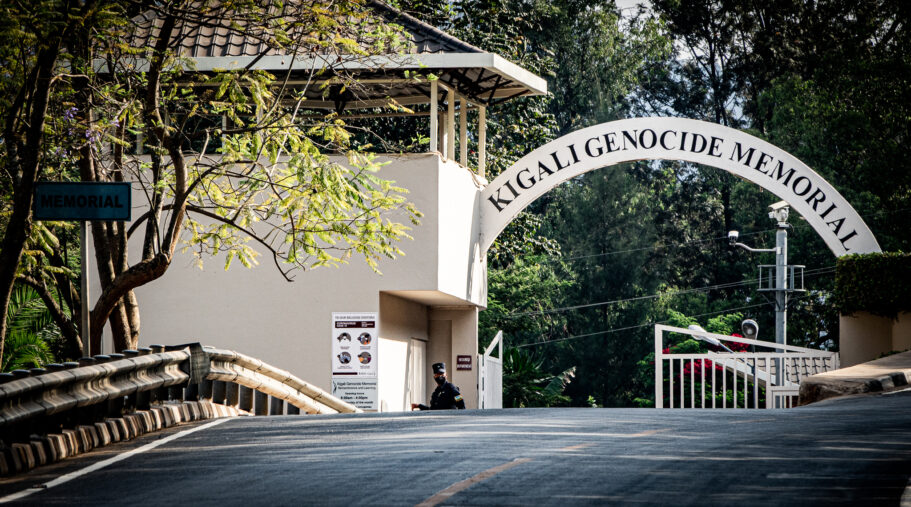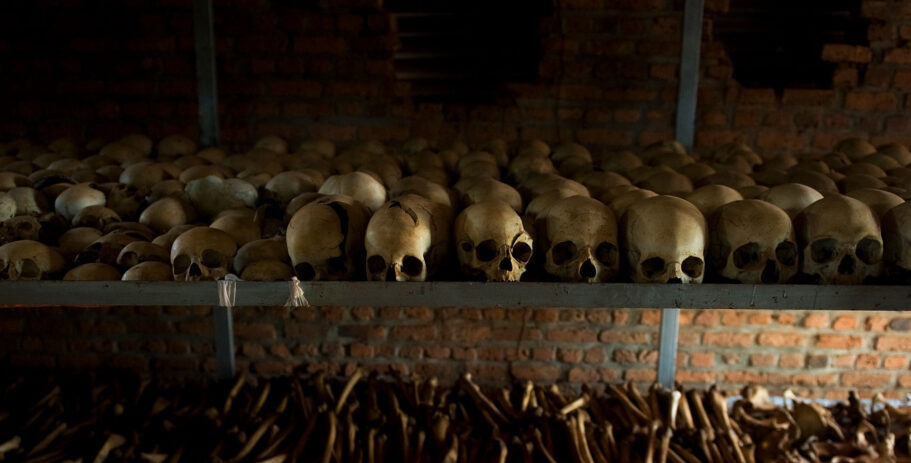RWANDA GENOCIDE MEMORIAL CENTERS
From 7th April to 15 July 1994, it was a reign of terror in Rwanda with a civil war between the minority Tutsi and the majority Hutu and Twa tribes. The tribes always conflicted from 1990 but due to the Arusha Accords signed by the Hutu President (Juvenal Habyarimana) and the Rwandan Patriotic Front – a rebel group composed of Tutsi refugees, the conflicts were managed.
However, when the Hutu President (Juvenal Habyarimana) was assassinated on 6th April in a plane crash in his compound, all the agreements ceased and the Hutu attacked the Tutsi as early as the next day.
The killings started in the early morning of the 7th when the Tutsi people were attacked by the Hutu irrespective of political position, age, religion, and gender among others and this never ceased until 15th July 1994, lasting about 100 days. The 100 days were full of bloodshed, hostility, looting, rape, and panic. Rwandese have lived to remember these days that left over 800000 people deceased.

What our experts love about Rwanda
Uganda is renowned for its stunning natural beauty, including the Rwenzori Mountains, the Nile River, and numerous national parks like Bwindi Impenetrable National Park, It's a prime destination for wildlife lovers
Lovy - Travel Expert

Kigali Genocide Memorial
The most visited genocide center is Kigali Genocide center, located at the edge of the Kigali city in a town called Gisozi. The center has the highest number of the Tutsi that were murdered buried in this place which attracts many tourists and locals as compared to other genocide centers.
The National Commission constructed a building in 2000 as a memorial center for the people who lost their lives in this place. Entrance to the building is free, however, for a better experience charged services are provided:
· An audio educational guide device gives an elaborate explanation of each stop with the memorial. Please select a language of your choice like English, French, Kinyarwanda, German, Mandarin, Dutch, Italian, Spanish, Hebrew, Hindi, Japanese, Korean, Russian, Portuguese, Swedish, and Ukraine.
· A rose to lay at the burial site to pay respect to the victims.
· A champion Humanity pin
· WIFI coupon to use at Museum café
Hundreds of people visit the genocide centers daily including survivors, the local community who have their loved ones resting in this place, and the international community to honor the victims of the genocide.
Nyamata Genocide Memorial
The pain still feels fresh whenever the natives remember a thousand people who were murdered in a church in the south of Kigali city. Most of the victims had just survived the Murambi school massacre and ran to seek refuge in the church and they were welcomed by the church priest who allowed them to use the church as a hiding haven.
Unfortunately, they were attacked by the Hutu who made holes in the church building so as to throw in bombs and over 50,000 people did not leave this place alive. The victims were buried here and the graves are visible when you visit the genocide center plus their identity cards at the altar in memory of the massacre. Natives still visit the church to mourn their loved ones.

MURAMBI GENOCIDE MEMORIAL CENTER IN RWANDA
Before the Nyamata church incident, thousands of the Tutsi were murdered in then technical school. It was a base for the French troops so the Tutsi thought they were safe and also the then mayor plus bishop convinced the Tutsi that they were safe but sadly it turned out to be a trap as the French troops retreated immediately when they saw the Hutu attacking.
The Tutsi were thirsty and hungry which made them weak hence less resistance, most of them were slaughtered and stoned to death, and even those who managed to escape were murdered the next day in the Nyamata church massacre.
The place is currently surrounded by graves and some bones put in place to exhibit and commemorate the dark days of 1994.
NYANZA GENOCIDE MEMORIAL IN RWANDA
The Belgian government constructed a base known as Ecole Technique Officielle to protect the Tutsi from the angry Hutu which made over 2000 Tutsi seek refuge in this base as they were certain of protection from the Belgians. However when the Hutu, attacked the Belgian soldiers and killed 10 of them it created fear in the Belgians who abandoned the camp leaving the unarmed Tutsi defenseless to the Hutu.
Tutsi were made to march to a garbage site in Nyanza where they were murdered and thousands demised. The site is also remembered for the royal death of the Queen of Rwanda – Queen Rosalie Gicanda who was murdered along with her attendants and was laid to rest at the royal palace in Nyanza.
BISESERO GENOCIDE MEMORIAL CENTER IN RWANDA
The Tutsi were attacked most of the time and they could just surrender but this time the story changed, they stood their ground and attacked back which led to the death of 4000 Hutu and Tutsi. The Tutsi were unarmed and used stones and sticks to try and fight back. A memorial site was created in Karongi to remember the Tutsi resistance.
NTARAMA GENOCIDE MEMORIAL CENTER IN RWANDA
This was another church incident where the Tsutsi were massacred as they sought refuge in the church, this left 5000 people dead in the south side of Kigali in Bugesera district in Ntarama parish.
NYARUBUYE GENOCIDE MEMORIAL CENTER IN RWANDA
On the 15th of April 1994, Tutsi natives were left in pain and tears as the Hutu pulled down the Nyarubuye Roman Catholic Church in Kibungo province using bulldozers.
The Hutu were armed with machetes and rifles which are alleged to have been provided by the city mayor Sylvestre Gacumbtsi who was later arrested and sentenced to life imprisonment.
The Hutu applied a lot of violence on these people leaving over 20,000 people dead
In conclusion, the 100 days of the Rwanda Genocide left a sad feeling of pain in Rwandese people as many still visit these memorial centers and weep in pain for their loved ones, however much as the pain will never fade away, they encourage forgiveness, peace and unity among the natives and spreading any information about the genocide is currently considered a crime leading to imprisonment in Rwanda.
Talk to an expert
Our Travel Specialists are experts in East Africa adventures. They can answer your questions and help you pick the perfect trip. Contact us to learn more or book your trip today!

If you need any help highlighting the experiences or creating memorable safari, feel free to ask!
CONTACT INFORMATION
© 2024 Berengei African Safaris | Crafted by Robylinks Solutions
